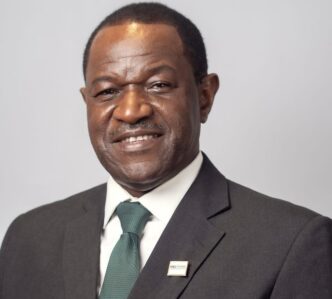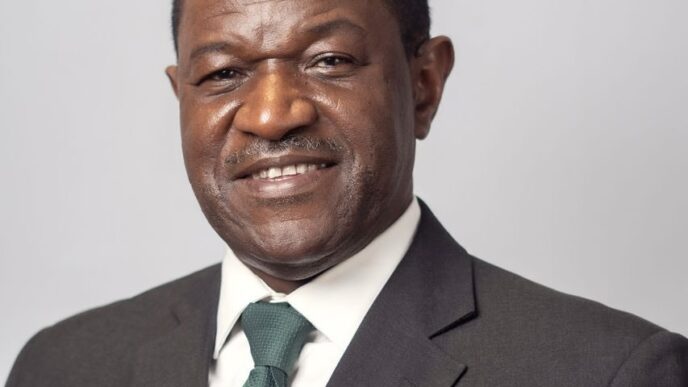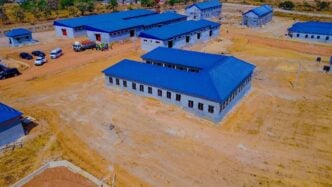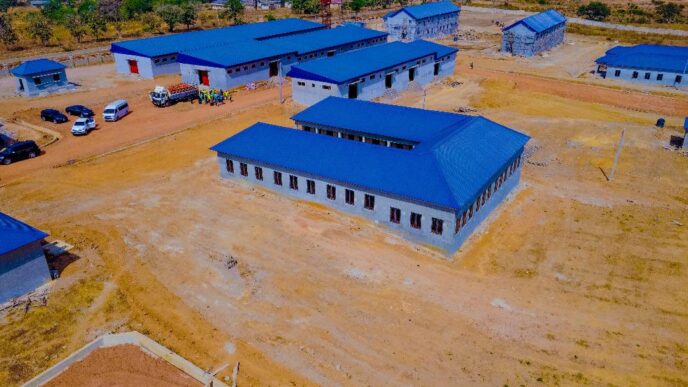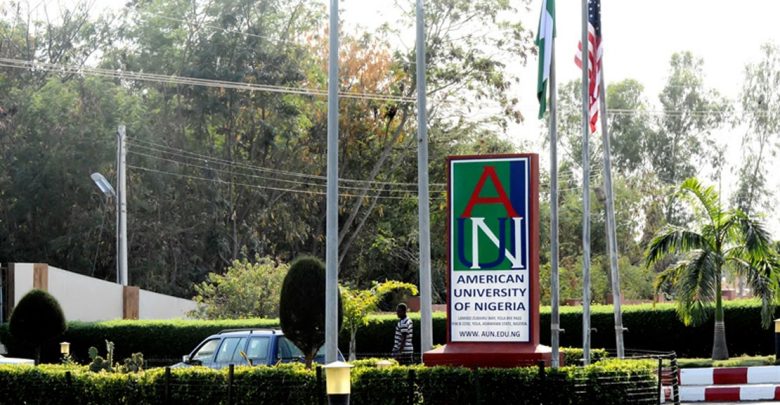BY TEMIDAYO TAIWO-SIDIQ
Today, May 3, is World Press Freedom Day, a day designated by the United Nations General Assembly in 1993, following UNESCO’s Windhoek Declaration. It reminds governments to respect their commitment to press freedom and urges media professionals to reflect on the values of freedom, ethics, and responsibility that define our noble calling. This piece is a deep reflection for all media practitioners and people of goodwill.
Democracy, as a concept, was born in the city-states of ancient Greece, where the idea that governance should be by the people and for the people first took root. The United States of America, often described today as the bastion of democracy, drew from these ancient ideals and enshrined them in its foundational documents. The Declaration of Independence boldly proclaimed, “We hold these truths to be self-evident, that all men are created equal.” Centuries later, President Abraham Lincoln would distill democracy’s essence at Gettysburg: “Government of the people, by the people, for the people, shall not perish from the earth.”
Yet, here we are. Over two millennia after democracy’s birth, and nearly 250 years after the American experiment began, Nigeria’s practice of democracy remains a battered shadow of its promise.
Advertisement
Democracy, contrary to widespread simplifications, is not the mere periodicity of elections or the noisy agitation of protests. It is a value system. It thrives on principles, not perfunctory rituals. It demands respect for human rights and fundamental freedoms, freedom of association, freedom of expression and opinion, access to power under the rule of law, the holding of free and fair elections, a pluralistic political system, separation of powers, an independent judiciary, transparency and accountability in public administration, and a free, independent, and pluralistic media.
These are not mere checkboxes; they are values, and sadly, values are what we seem to lack the most across Africa in our democratic practice.
For reflection today, let’s keep our attention on the values of transparency and accountability. Section 22 of the Constitution of the Federal Republic of Nigeria, 1999 (As amended) gives the media a clear mandate:
Advertisement
“The press, radio, television, and other agencies of the mass media shall at all times be free to uphold the fundamental objectives contained in this Chapter and uphold the responsibility and accountability of the Government to the people.”
Suffice to say, that this is exactly what qualifies the media as the Fourth Estate of the Realm in Nigeria, as it is constitutionally mandated to hold government (the three arms of government, you may say) accountable to the people. The press, radio, television, and other agencies of mass communication are to be guardians, not gossipers. Referees, not cheerleaders.
In the past few weeks, however, our airwaves, newspapers, and social media feeds have been saturated with conversations about the 2027 elections. Media coverage during project flagoffs and commissions, from one column to another TV interview, as well as nearly every show on the radio, has been reduced to speculation about who is running for what, while governance suffers abandonment. Need I remind you that the President and 28 Governors are barely two years into their terms, with 19 of them as first-term leaders?
This is not to say that opposition parties do not have the right to prepare for elections. That, after all, is part of the democratic process. But what has happened to the media’s sacred role as the impartial observer? What has become of the Fourth Estate’s responsibility to hold the government to account, not create or merely echo the political noise?
Advertisement
Midterm is only four weeks away, yet instead of demanding performance reports, sectoral scorecards, and agenda fulfillment updates, we are obsessed with who is running next. Why is the media abandoning its sacred duty?
Listen to the President’s Media Adviser, Bayo Onanuga: “Until the Independent National Electoral Commission (INEC) sets the timetable for the 2027 elections, the President has not endorsed or authorised anyone or any group to mount a 2027 campaign for him through any media channel, be it Out-of-Home, print, digital, radio, or television. Therefore, we urgently call on individuals and groups funding this 2027 political campaign through the ongoing deployment of materials on billboards nationwide to cease immediately. President Tinubu and his deputy are fully committed to delivering the ongoing task of nation-building they have set for themselves. This commitment is evident in their focus on economic revitalisation, human capital development, infrastructural renewal, social investment, and national security. When INEC signals that the processes for the 2027 elections can start, President Tinubu will duly inform Nigerians of his plans.”
Doesn’t this suggest that those currently pushing 2027 narratives may not even wish the president well? Are we that blinded by self-interest?
Moreover, in a democracy (for emphasis again), the possibility of internal contestations even within ruling parties must never be foreclosed. Have we, by our collective obsession, declared the 2026 primaries of the governing All Progressives Congress (APC) a coronation rather than a contest? If we cannot imagine alternatives, we are not in a democracy but a monarchy with ballots.
Meanwhile, first term governors across party lines are falling over themselves to endorse the president for a second term. Was this how the founding fathers of this great country envisaged governance? No, it was not. They understood the weight of leadership and the sanctity of governance.
Advertisement
We keep saying, as if bound by an ancient spell, that a leader only has two years to govern, one year to plan re-election, and one year to campaign. Now, even that absurd timeline has been corrupted. In 2025, barely two years into these administrations across the majority of states, we’re already ceding another year to politicking.
Do the math. First year to “settle in,” third year for campaigns, fourth year for elections. That’s three out of four years gone. So, when exactly do we govern?
Advertisement
This is how you institutionalise failure. You don’t need a law to legalise mediocrity, just keep repeating it until everyone believes it.
If we are truly serious about development, about fixing roads, healing hospitals, reforming schools, securing borders, and feeding our people, we must reset the clock. We must reclaim the middle years of governance from the claws of political chatter and re-election fever.
Advertisement
Because if that doesn’t happen, government after government will come and go, yet good governance and meaningful development will elude us still. We will remain trapped in a recurring lamentation, reading from a national Book of Lamentations.
Are we not tired of pleading only the mercy of God, rather than living by God’s mercy and proper planning, as the Scriptures teach in Ephesians 3:20 and Luke 14:28-30?
Advertisement
As Nelson Mandela once said, “Freedom cannot be achieved unless the people have been emancipated from poverty.” Our media must stop trading the substance of freedom for the shadows of politicking.
We must ask: Are we truly ready to govern, or are we simply biding our time until the next election? Are we seriously invested in the progress of this nation, or are we content to perpetuate a system that prioritises electoral theater over real, substantive change?
The media must ask these hard questions. It must stand at the forefront of this battle for accountability, not as an accomplice in political gamesmanship, but as the moral compass that guides the public toward the truth.
Part of the media’s role today should be deep-dive comparisons and scorecards using data, hard facts, and real-life economics, helping citizens to appreciate progress or lack thereof, measuring performance sector by sector, and assessing how far promises have been met. Where are we in the quest for (the so-called) true federalism? Where is the diversification of our economy? How much progress has been made in power sector reforms and electoral system reforms?
It is important to note that this is not an analysis of the President’s performance or any other governor for that matter, but a call to duty for the media, of which I am a proud member. The task of nation-building is sacred.
And as James Madison once said, “The advancement and diffusion of knowledge is the only guardian of true liberty.” Likewise, as Chinua Achebe put it, “The trouble with Nigeria is simply and squarely a failure of leadership.” But I dare add, a failure of critical institutions like the media is equally fatal.
To all journalists, I salute your courage, sacrifice, and resilience. Despite working in one of the most challenging terrains globally, many of you have stayed the course, risking your lives for truth, accountability, and justice. Some have paid the ultimate price in the last year. Their sacrifices must never be in vain.
A Yoruba proverb says: Àìkú parí ọ̀ràn bí ikú – not dying does not end the matter like dying does. (Survival alone is not victory; fulfilling our purpose is.)
We must not let the sacrifice of brave journalists become mere statistics. We must remember: Democracy is not a system, it is a culture. And it thrives only where values are upheld.
We are normalising underperformance, and the media must not become an active participant in that decline. This is a demand for the resurrection of reason, responsibility, and results in our democratic culture.
It is a call to duty and a call to conscience.
Because if we continue like this, democracy won’t just die, it will die with a smile on its face, and the media playing the drums at its funeral.
Temidayo Taiwo-Sidiq is a political journalist, governance communicator, and public accountability advocate with nearly 15 years of experience advancing conversations that shape democracy and civic engagement.
t[email protected], @thetaiwosidiq on X | Facebook
Views expressed by contributors are strictly personal and not of TheCable.



